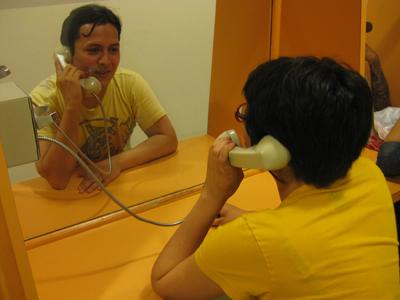Spokespeople for the Department of Citizenship and Immigration and Canada Border Services Agency (CBSA) say the humanitarian and compassionate grounds application filed on behalf of Toronto artist Alvaro Orozco isn’t likely to prevent his deportation.
Orozco was arrested on May 13 in Toronto and is being held at the Toronto Immigration Holding Centre in Rexdale.
Minister of Citizenship and Immigration Jason Kenney was unavailable for comment on May 19. But when asked if Kenney was considering granting Orozco residency, spokesperson Tracie LeBlanc says, “Minister Kenney does not have the authority to stay removal orders under the Immigration and Refugee Protection Act…. All refugee claimants in Canada have the right to due process…. When they have exhausted all legal avenues we expect them to respect our laws and leave Canada.”
Trinity-Spadina MP Olivia Chow says LeBlanc’s assessment is shortsighted. She says that while it’s true that Kenney does not have the authority to defer deportations, he can grant a minister’s permit to those filing humanitarian and compassionate grounds applications, thus granting them permanent residency.
“It would be the [Minister for Public Safety Vic Toews] that would be delaying the deportation order, but that’s not the point,” Chow says. “If Jason Kenney tomorrow issued a minister’s permit to allow Alvaro to stay in Canada based on humanitarian and compassionate grounds, then he can stay… the minister has the full right to do so.”
Toronto police have so far provided no information about the events leading to Orozco’s arrest, but Vanessa Barrasa, a CBSA spokesperson writes in an email to Xtra that an arrest warrant was issued on Oct 4, 2007, after he failed to appear for removal.
“A person under an immigration warrant is normally entered in Canadian Police Information Centre (CPIC) which is available to law enforcement agencies across the country,” she writes. “Law enforcement agencies are obliged to act when they encounter a person under warrant, either criminal or non-criminal.”
Is Orozco’s removal a special priority for CBSA?
“Removals of failed refugee claimants and individuals with other immigration violations are…. necessary to maintain the integrity of Canada’s immigration program,” replies Barassa.
Toronto immigration lawyer and human rights activist El-Farouk Khaki worked on Orozco’s humanitarian and compassionate grounds application.
“I think [Alvaro] was ill served at the very beginning,” he says. “When we tried to point out some of the deficiencies and some of the problems… particularly in the refugee hearing process, I think people sort of closed ranks. I think because of the profile of the case itself, the institution needed to… protect its own integrity. That’s my sense… but that’s just my own conjecture.”
Khaki says it’s common for people to be deported before their humanitarian and compassionate grounds applications are reviewed.
“I can’t give you a statistic, but you have a legal regiment that says a person cannot be deported while a person is…. hearing this process, and then you also have one that says that this kind of application [humanitarian and compassionate grounds] does not stop removal.”
Why would Immigration Canada rush to remove Orozco before reviewing the application?
“Immigration is not set up to open the doors of the country,” says Khaki. “Immigration systems are set up to keep people out.”
Is it common for CBSA to deport people while their humanitarian and compassionate grounds applications are still pending? Barassa emphasizes that such applications “do not deter us from removing him.”
Readers may contact Kenney themselves here. For more information on Orozco’s case, join the Let Alvaro Stay Facebook page here. Sign a petition to let Alvaro stay here.


 Why you can trust Xtra
Why you can trust Xtra


